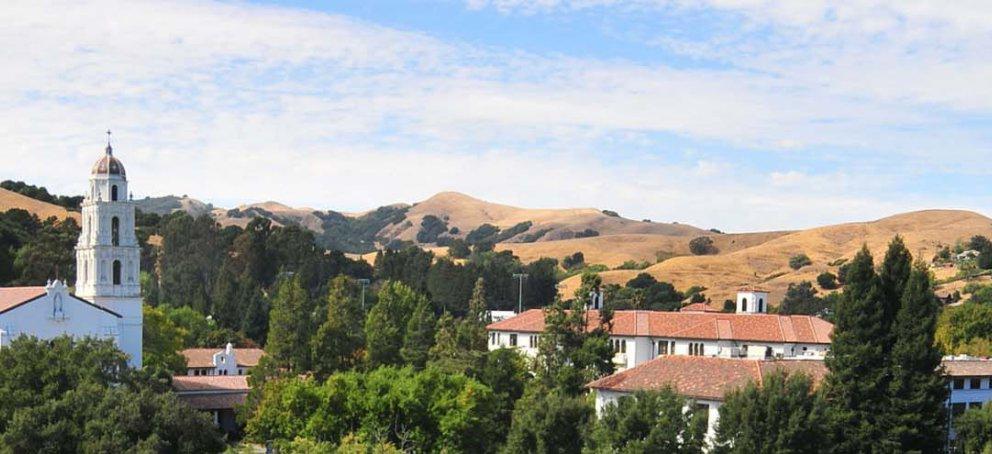The Lasallian Educational Tradition
January 27, 2015
In 1680, St. John Baptist De La Salle created a new religious community in his native France that he and his first followers called “The Brothers of the Christian Schools.” This name emphasized that the foundation of their educational work was fraternal, Christian, and that it focused on schools. De La Salle was acutely aware of the condition of children from poor and working-class families, so he and the Brothers opened gratuitous schools where students received a Christian and human education, enlightening their minds and hearts and thereby leading them to salvation while becoming productive members of society.
The schools of the Brothers are sacred places – an extension of God’s care for students – where the role of the teacher is seen as a vocation, a spiritual calling from God. Using the language of St. Paul, De La Salle instructs the Brothers to see themselves as ambassadors of Jesus Christ. He tells the Brothers to adore God in their students, and urges them to write daily on their students’ hearts a letter dictated by God’s Holy Spirit. The Brothers’ schools are places where the relationship between teachers and students is highlighted, where teachers dedicated to their students teach first by example, where the Word of God enlightens and deepens human experience, and where students encounter God in the person of their teachers. It is not without reason that in 1950 the Church named St. John Baptist De La Salle Patron of Teachers.
Beginning with elementary education, the Brothers gradually developed secondary schools, polytechnic institutions, colleges and universities. In the 19th century, the Brothers opened schools in the Middle East, Asia, Canada and the United States, so their work now continues in more than 83 countries. The worldwide educational mission of the Brothers is a compelling one, and, in the 20th century, laymen and women – with backgrounds as diverse as our students – have chosen to partner with and share the ministry of the Brothers. Today they number more than 89,000. As a Lasallian collegiate institution, Saint Mary’s begins with a sense of community among students, professors, and staff, since all join together to teach and to learn. This community comes together from a variety of faith traditions, ethnicities, and social and economic backgrounds. It engages in an educational adventure that permeates the entire collegiate environment and is identified by mutual respect and understanding, openness of mind in dialogue, eagerness to find the truth, and acceptance of others with both their uniqueness and limitations. Such a community nurtures an engagement in intellectual growth, a spirit of faith and service to others, an active concern for justice, and sensitivity to the dignity of the human person.
The Brothers’ Declaration frames the Lasallian mission in this way: it “awakens in students a serious attitude toward life and the conviction of the greatness of human destiny; it makes it possible for them, with intellectual honesty and responsibility, to exercise the autonomy of personal thought; it helps them use their liberty to overcome their own prejudices, preconceived ideas and social pressures, as well as the pressures that come from disintegration within the human person; it disposes them to use their intelligence and their training in the service of their neighbors; it opens them to others; it teaches them how to listen and to try to understand, to trust, and to love; it instills in them a sense of trustworthiness, brotherhood, and justice; it opens them to the world and to life, to the wonder and beauty of nature, to the diversity and richness of art, to the conquests of science and technology, to a deep thought and reflection, to the varieties of civilizations, to the joys of friendship and of giving themselves to others.” [Declaration VI: 41] In all these ways and more, the Lasallian mission of the Brothers and those who join with them brings them and their students face to face with the God who creates, loves, and saves them.
Lasallian educators embrace four characteristics gleaned from De LaSalle’s writings: they view their teaching ministry as a call from God; they see themselves as coworkers with God; they have a special concern for the instruction of the poor; and they are guided by the inspiration of the Holy Spirit. They also appreciate De La Salle’s foundational principles and spirituality, and they are gratified by developments that have furthered God’s educational work in many places, on many levels and in many types of education. They look to a future in which students are empowered by astonishing advances in education, in arts and technology, in global awareness and in a fuller understanding of human destiny as given to us by the revelation and love of Jesus Christ.
